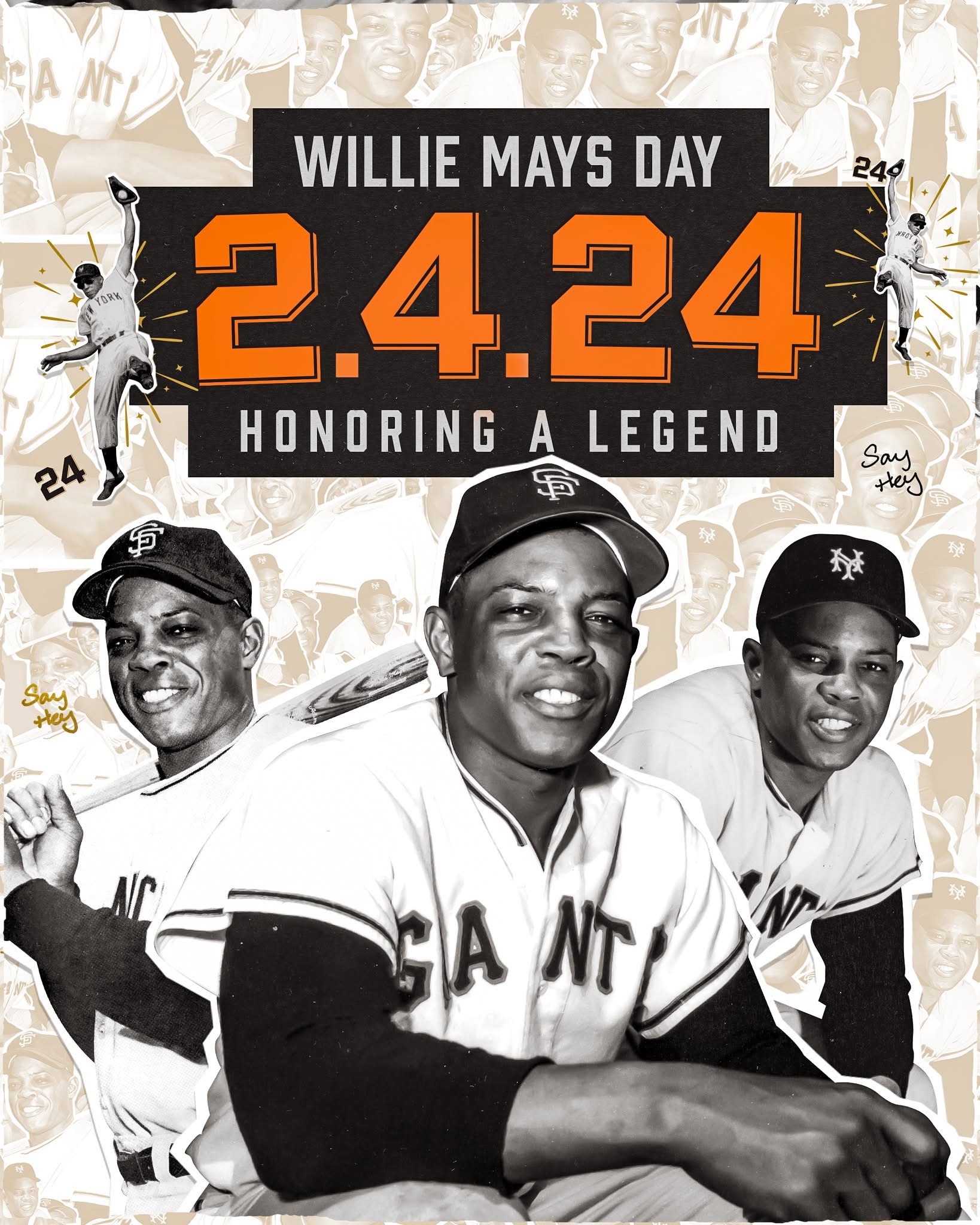
Willie Mays, often considered the greatest living baseball player, is a living testament to the resilience and transformation of both the sport and society. Born on May 6, 1931, Mays came into the world during the depths of the Great Depression. His playing career, which spanned from the era of racial segregation in Major League Baseball (MLB) to the dawn of free agency, is a story of trailblazing achievement, overcoming adversity, and changing the landscape of American sports.
Mays’ journey to greatness is inextricably linked to the racial struggles that dominated baseball during the first half of the 20th century. He was among the first wave of Black players to make their mark in the major leagues, following in the footsteps of Jackie Robinson, who famously broke the color barrier in 1947. But Mays was different in several key ways. While Robinson faced fierce hostility both from within and outside the game, Mays was embraced by White fans, especially in San Francisco, where he became an icon of the sport. His powerful swing, impeccable fielding, and electrifying personality earned him admiration from all sides, including those who might have previously opposed the integration of baseball.
However, his path was not without complications. Mays’ success in the 1950s and 1960s coincided with a growing racial consciousness among African Americans. Jackie Robinson, ever the advocate for racial equality, openly criticized Mays for what he saw as a failure to use his platform to speak out against racial injustice. Robinson’s belief was that Black athletes like Mays, who had reached the pinnacle of success, had a responsibility to fight for change both on and off the field.
Mays, on the other hand, chose a different approach. While he was deeply aware of the racial dynamics surrounding him, he believed that his actions on the field 
Through it all, Mays emerged as a model of excellence in a racially divided society. He became one of the most celebrated and beloved figures in baseball history, a five-tool player with remarkable skill in every facet of the game. He played 22 seasons in the Major Leagues, primarily with the New York and San Francisco Giants, where he earned 24 All-Star selections, two MVP awards, and 12 Gold Gloves. His most iconic moment came in the 1954 World Series, when his over-the-shoulder catch in center field became an enduring symbol of athleticism and grace.
As the years passed, Mays lived to witness the continued evolution of Major League Baseball. He saw the implementation of free agency, the expansion of the game internationally, and the emergence of a new generation of Black stars who followed in his footsteps, including players like Barry Bonds, Ken Griffey Jr., and Derek Jeter. Mays himself became an emblem of Black excellence in sports, celebrated not only for his on-field achievements but also for his impact on the culture of the game.
In the twilight of his career, Mays has been able to witness Major League Baseball’s increasing efforts to acknowledge its history of racial inequality, such as the widespread support of the Black Lives Matter movement. In May 2021, just a month before his 90th birthday, Mays reflected on the changing nature of the sport, seeing MLB finally embrace the fight for racial justice. This marked a full circle for a man who had played through an era where such conversations were often silenced.
Willie Mays’ legacy is complex but undeniably profound. He helped pave the way for future Black athletes, shattering stereotypes and proving that talent and determination could overcome the obstacles of racism. Yet, he did so in his own way—without the outward activism of Jackie Robinson, but with a quiet dignity that allowed his extraordinary play to speak volumes.
Mays’ influence goes far beyond the field. In his life, he embodied both the triumphs and challenges of a Black man navigating a country and a sport still deeply entrenched in racial divisions. Now, as he approaches his 94th year, Mays remains a towering figure, not just in baseball but in the larger narrative of America’s ongoing fight for racial equality.
Leave a Reply